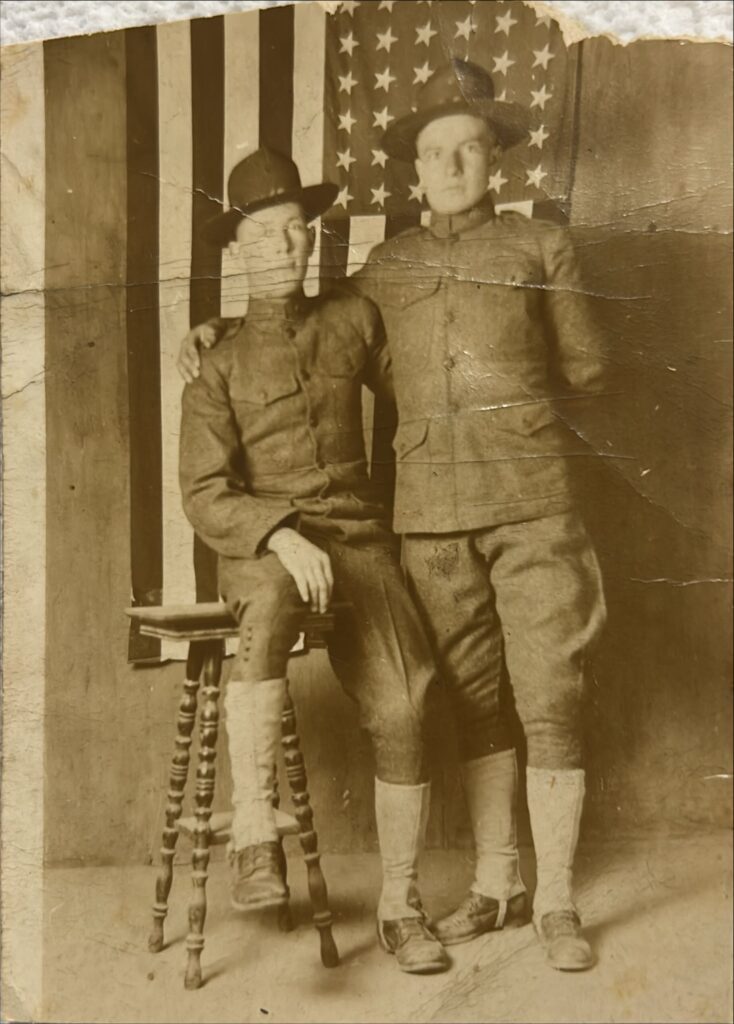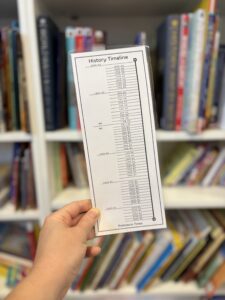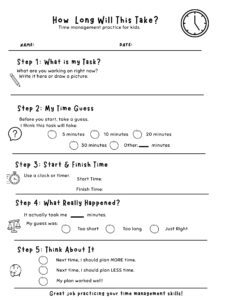(This post may contain affiliate links. Read my full disclosure.)
Utilize by itself sounds harsh when you’re talking about people. Of course, love, honor, etc., can be included too! When we’re talking about giving your children a great education, though, we are talking a lot about resources and how to utilize what you have. And I’m telling you, the “elders” in your life can add so much when it comes to education.
An Untapped Resource:
One of the greatest untapped resources in homeschooling is the wisdom and life experience of older generations. Grandparents, neighbors, or family friends often carry a wealth of firsthand stories and knowledge, particularly when it comes to subjects like history. While textbooks provide facts and dates, older adults can breathe life into these lessons by sharing personal experiences or family stories that connect to larger historical events. For example, a grandparent who lived through the Cold War or Civil Rights Movement can offer a vivid, emotional perspective that no textbook can fully replicate.
History becomes especially meaningful when it feels personal. Inviting an older relative to talk about what life was like during a certain decade—what they wore, how they communicated, what major events they remember—gives children a sense of continuity and context. It helps them see that history isn’t just something that happened far away to strangers; it happened to people just like them, sometimes right in their own families.
Incorporating older people into your homeschool routine doesn’t have to be formal. A casual chat over lunch, a recorded interview, or even a collaborative family tree project can all spark curiosity and deepen understanding.
Their involvement not only enriches the academic experience, but also nurtures relationships and helps children value the voices of those who came before them. It’s a way of learning that honors both knowledge and connection—a true gift in any homeschool journey.
Our Day:
In our history curriculum, we span all of history chronologically once per year. I love when we get closer to the end of the year and reach modern times because I know my dad and grandmother can speak about much of it.
Today we went to make and can mahaw jelly with my grandmother. Have you ever had mahaw jelly? It was a staple at my grandmother’s house growing up and has remained my favorite since childhood. All my bears participated in the process with pauses in between to pick blackberries outside. (I love slow-paced days like this!) Add this to the list of “utilizing your elders” – learning skills like making and canning jelly!
My dad, who is a big history buff, was also there for the day. This week we happened to be studying WW1 and man, we were in for a treat. He discussed the ins and outs of the war as he knew it but the real treat was the family history he told us in relation to the war.
A Quick WW1 Story:
The bears’ great-great-grandfather ran away from his Texas home at 16 to join “The Great War” – a story familiar to many teenage boys of the time. He had big dreams of fighting in the cavalry. (I made sure to nudge big bear at this point in the story as if to say, “please learn from this and don’t be foolish at 16 😉 ). The officers he signed under said, “Sure, he could be in the cavalry.” Wink, wink.
They put that kid on a ship and made him a chef for the other soldiers. He travelled many times back and forth from the New York harbor to the shores of Great Britain. He would cook for healthy soldiers on their way to Europe and take care of wounded soldiers coming back to American shores.
When he left the military under honorable discharge, he took a year traveling back through American states until he finally reached his Texas home. It’s unknown what he spent that year doing – as far as we know, he never told anyone. Upon reaching Texas, he took up a job at a shipyard. He stayed in a boarding house nearby and met the bears’ great-great-grandmother. She had suffered a terrible lot and was the lone survivor of her family due to the Spanish flu. They married… and the rest is history.
My bears heard many, many YouTube videos that day discussing the ins and outs of the war, and don’t get me wrong, they were very, very helpful. I would betcha though, that they will remember this story told by their grandfather years from now in a far greater way than the facts they received from those videos.


Biblical Support:
The Bible beautifully supports the idea that younger generations should learn from those who came before them. Here are some powerful verses that highlight how sons—and all young people—can benefit from the wisdom and experience of their elders:
Deuteronomy 32:7 says,
“Remember the days of old;
consider the years of many generations;
ask your father, and he will show you,
your elders, and they will tell you.”
Learning from the past isn’t just helpful—it’s biblical. This verse invites us to seek out the stories and wisdom of those who lived before us.
Job 12:12 says,
“Is not wisdom found among the aged?
Does not long life bring understanding?”
Sometimes the best teacher is time. This verse highlights the value of age and experience as sources of true insight.
Proverbs 4:1-2 says,
“Listen, my sons, to a father’s instruction;
pay attention and gain understanding.
I give you sound learning,
so do not forsake my teaching.”
Here, the emphasis is on gaining understanding by staying close to the wisdom of older mentors and family members.
Learning that Lasts a Lifetime:
Inviting older generations into your homeschooling journey doesn’t just enrich academic learning—it nurtures connection, character, and a deep appreciation for the stories that shaped us.
Whether it’s a grandparent sharing a memory, a neighbor recounting their experiences, or simply reading scripture together, these moments can spark meaningful conversations and bring subjects like history to life in unforgettable ways.
As homeschoolers, we have the unique freedom to shape our children’s education in a way that values people as much as it values books. By honoring the voices of those who’ve gone before us, we teach our children not only to learn facts but to listen, ask questions, and see the world with empathy and curiosity. After all, learning isn’t just about what we know—it’s about who we know, and how we carry their wisdom forward.
Have you invited an older friend or family member to share their stories in your homeschool? I’d love to hear how it went! Share your experience in the comments below! Let’s celebrate generational learning—one story at a time. 💬📚👵👴





Pingback: Local Library | Homeschool Goldilocks